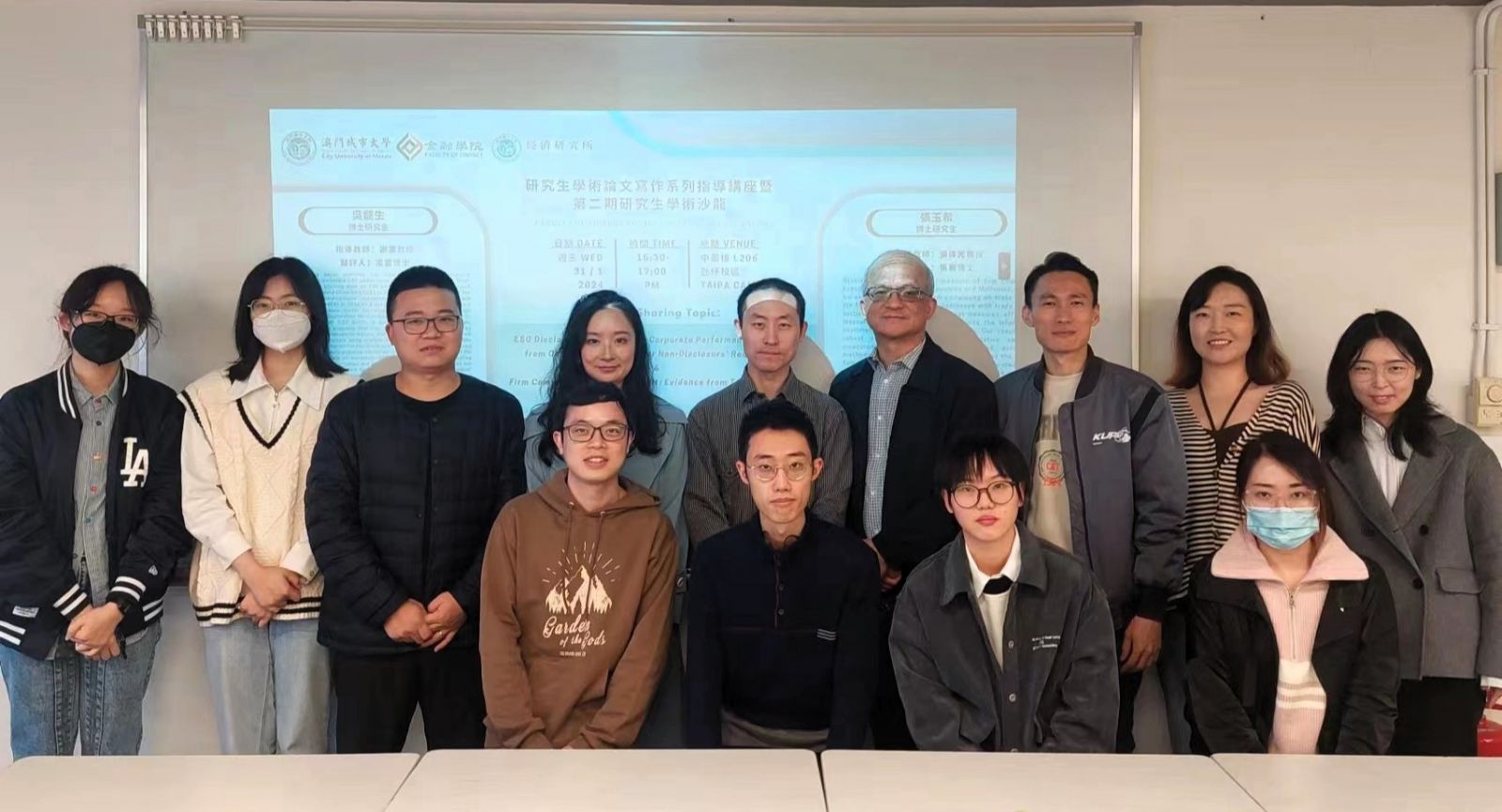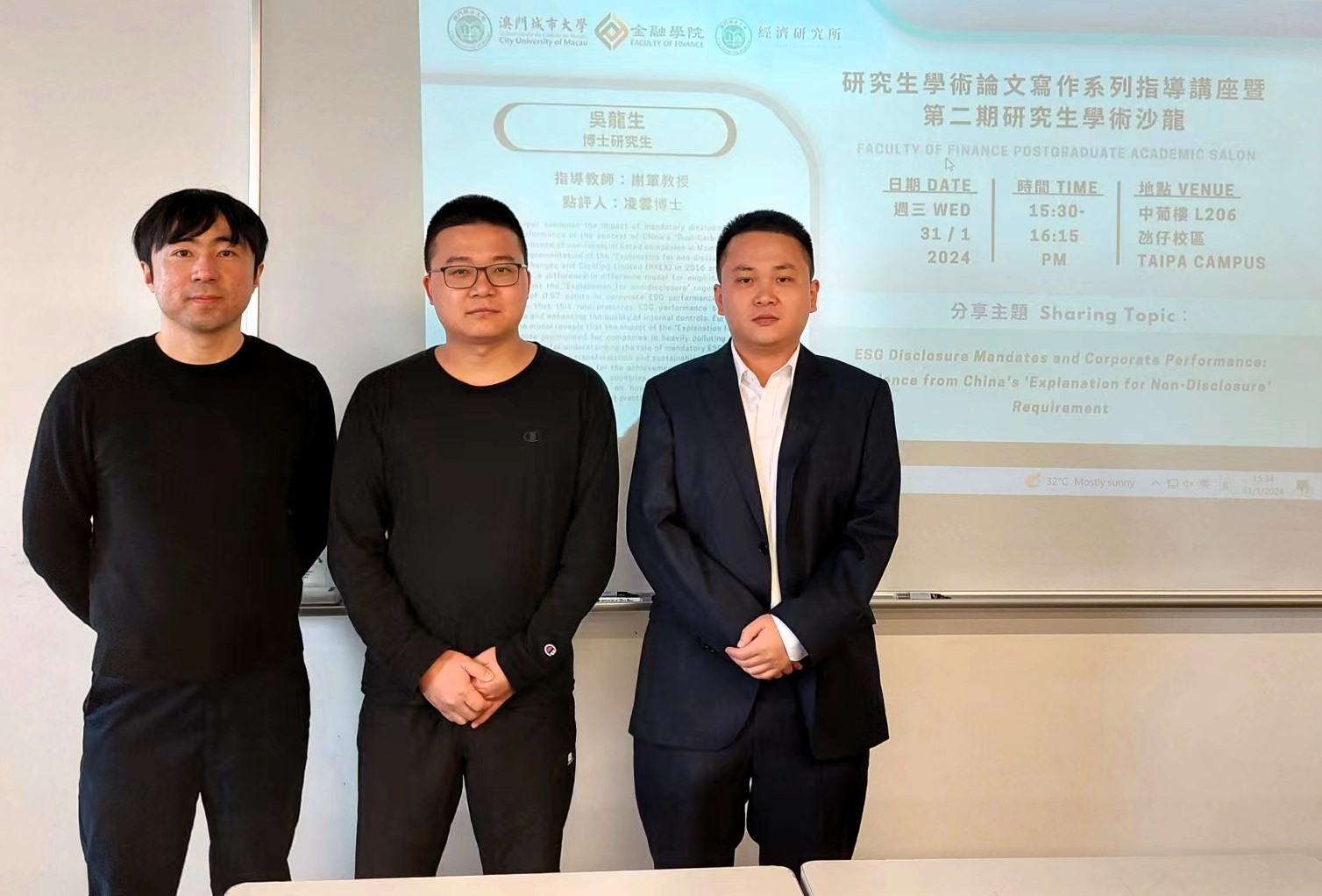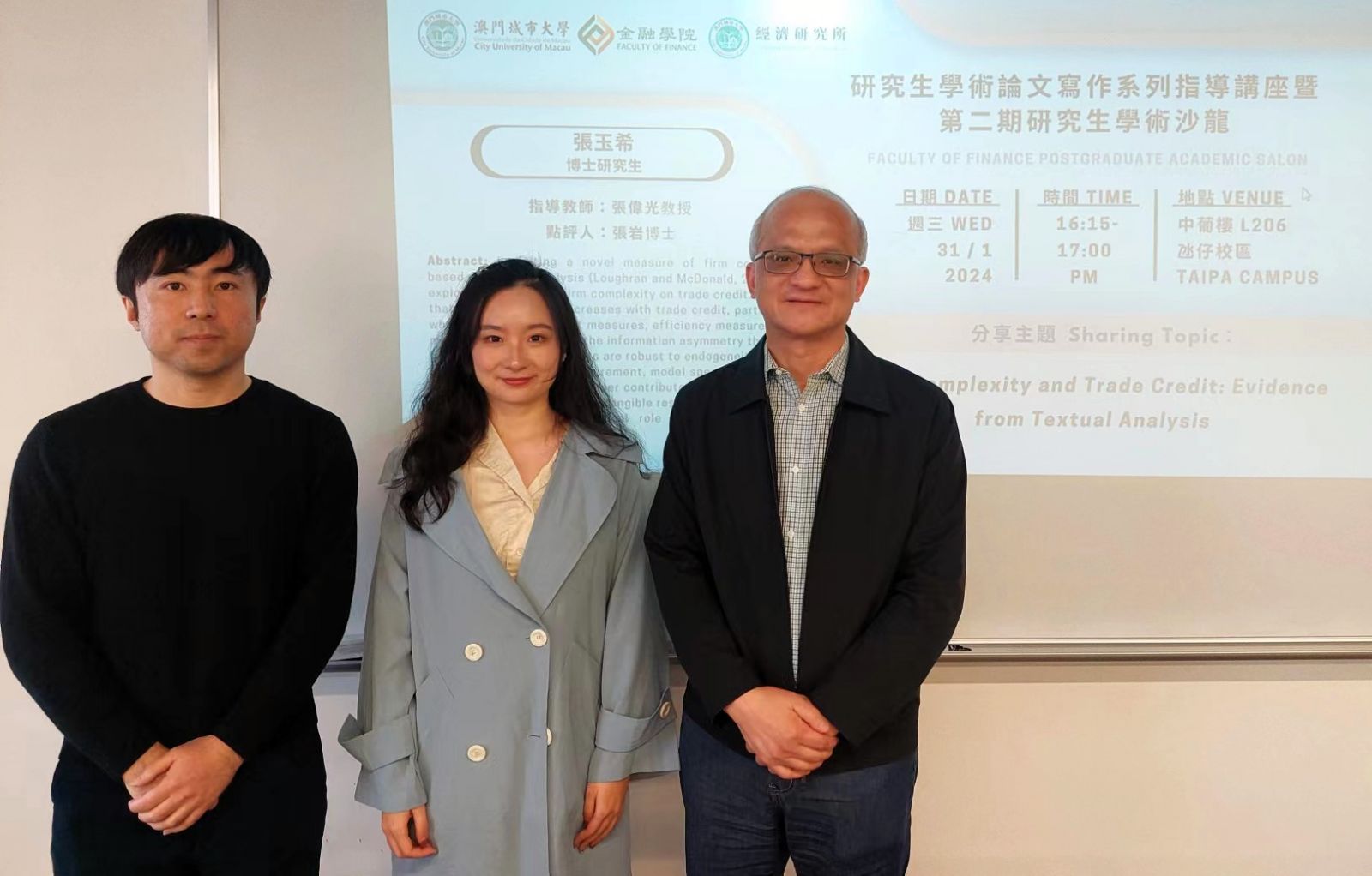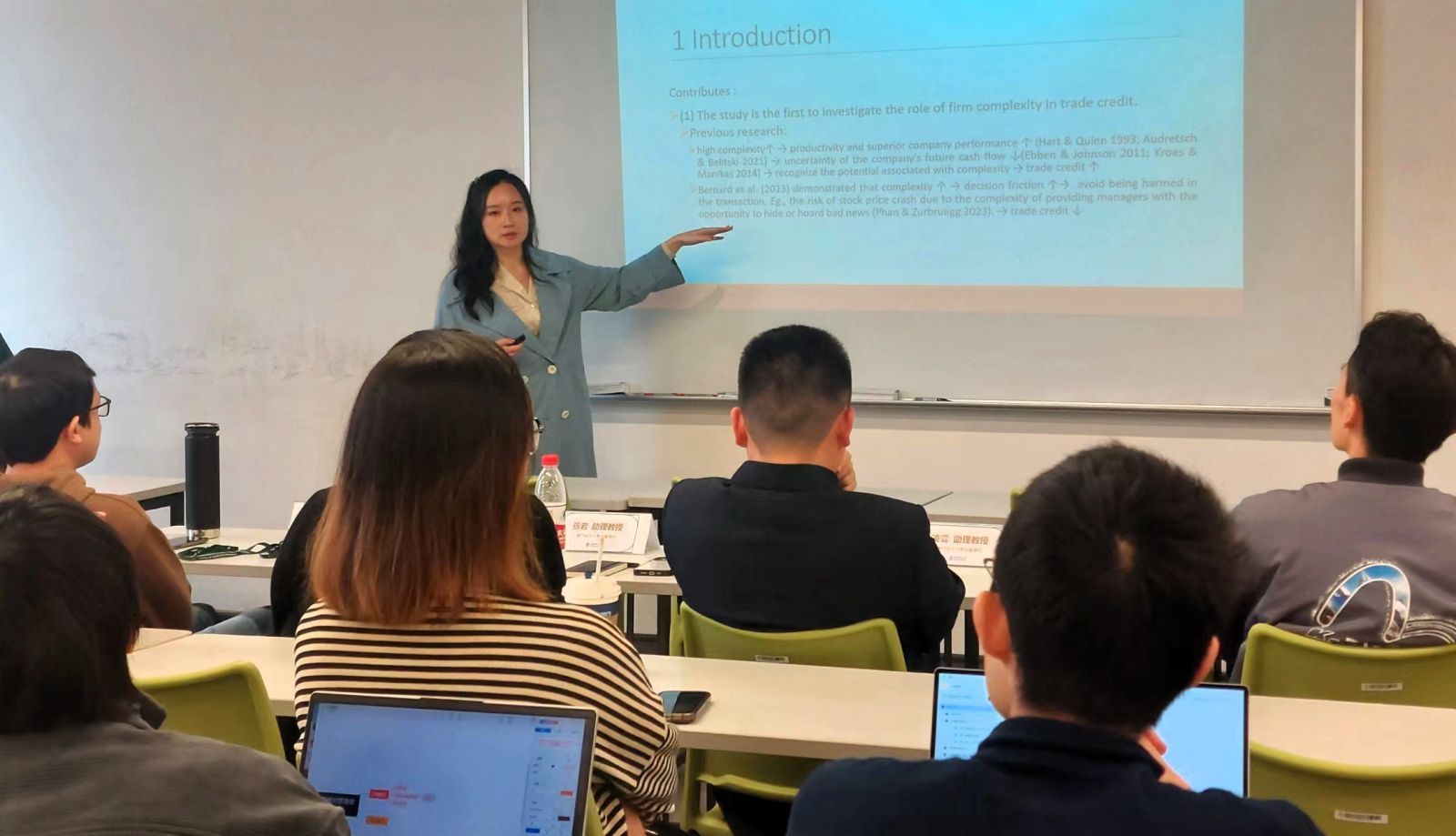
To enhance the academic writing and presentation skills of graduate students, the Faculty of Finance at the City University of Macau organized the Second Postgraduate Academic Salon in 2023-2024 academic year on January 31, 2024, at the Taipa campus in Room L206. The seminar was hosted by Dr. Deng Lin from the Faculty of Finance, and the speakers were Wu Longsheng and Zhang Yuxi, doctoral candidates from the Faculty of Finance, City University of Macau. The discussants of the conference, Assistant Professor Ling Yun and Assistant Professor Zhang Yan, discussed and exchanged their views on the research of the two students, respectively.

Wu Longsheng's latest paper "ESG Disclosure Mandates and Corporate Performance: Evidence from China's 'Explanation for Non-Disclosure' Requirement" studies the impact of mandatory disclosure requirements on corporate ESG performance in the context of China's "Dual Carbon" goals. Utilizing data on ESG performance of non-financial listed companies in Mainland China from 2013 to 2021 and the implementation of the "Explanation for non-disclosure" requirement by the Hong Kong Exchanges and Clearing Limited (HKEX) in 2016 as a quasi-experiment, this study employs a difference-in-difference model for empirical investigation. The findings indicate that the "Explanation for non-disclosure" requirement has led to an average increase of 0.57 points in corporate ESG performance scores. Mechanism analysis suggests that this rule promotes ESG performance by curbing corporate managerial myopia and enhancing the quality of internal controls. Further analysis using a triple difference model reveals that the impact of the "Explanation for non-disclosure" requirement is more pronounced for companies in heavily polluting industries. These findings are significant for understanding the role of mandatory ESG disclosure policies in promoting corporate green transformation and sustainable development. The results not only provide empirical support for the achievement of China's "Dual-Carbon" goals but also offer insights for other countries and regions in policy formulation. Additionally, this study sheds light on how enterprises can improve their ESG performance through better management practices and strengthened internal controls.
.jpg)
The latest collaborative paper "Firm Complexity and Trade Credit: Evidence from Textual Analysis" by Zhang Yuxi and Professor Adrian (Wai Kong) Cheung from the Faculty of Finance of City University of Macau uses a new corporate complexity measure based on text analysis to explore the impact of corporate complexity on trade credit. Trade credit is found to decrease with increasing firm complexity, especially when suppliers adopt cost measures, efficiency measures, and risk measures. This supports the information asymmetry theory of firm complexity. The results are robust to endogeneity issues, alternative variables measurement, model specifications, and estimation methods. The paper contributes to understanding the role of firm complexity, an intangible resource, in trade credit, and plays a crucial practical role in guiding corporate decision-making.

Dr. Ling Yun and Dr. Zhang Yan respectively commented on the papers of two classmates and put forward relevant suggestions for the research in terms of topic design, institutional background, empirical strategy and possible expansion. The atmosphere was lively, and the Second Postgraduate Academic Salon ended successfully with in-depth exchanges and heated discussions between teachers and students.

The Finance Salon organized by Faculty of Finance at City University of Macau serves as a platform for exchanging academic ideas and fostering academic awareness. With finance as the main focus, we invite senior experts from academia and the financial industry to engage in research discussions on cutting-edge topics and share industry development trends, aiming to provide a fresh academic experience and thinking model for CityU students and members of the faculty. Through activities like the Finance Salon, we hope to offer graduate students a better academic platform, activate and strengthen academic exchanges among scholars studying financial issues, encourage further exploration and research between teachers and students, and improve the academic ability of independent research and expression played a positive role.


